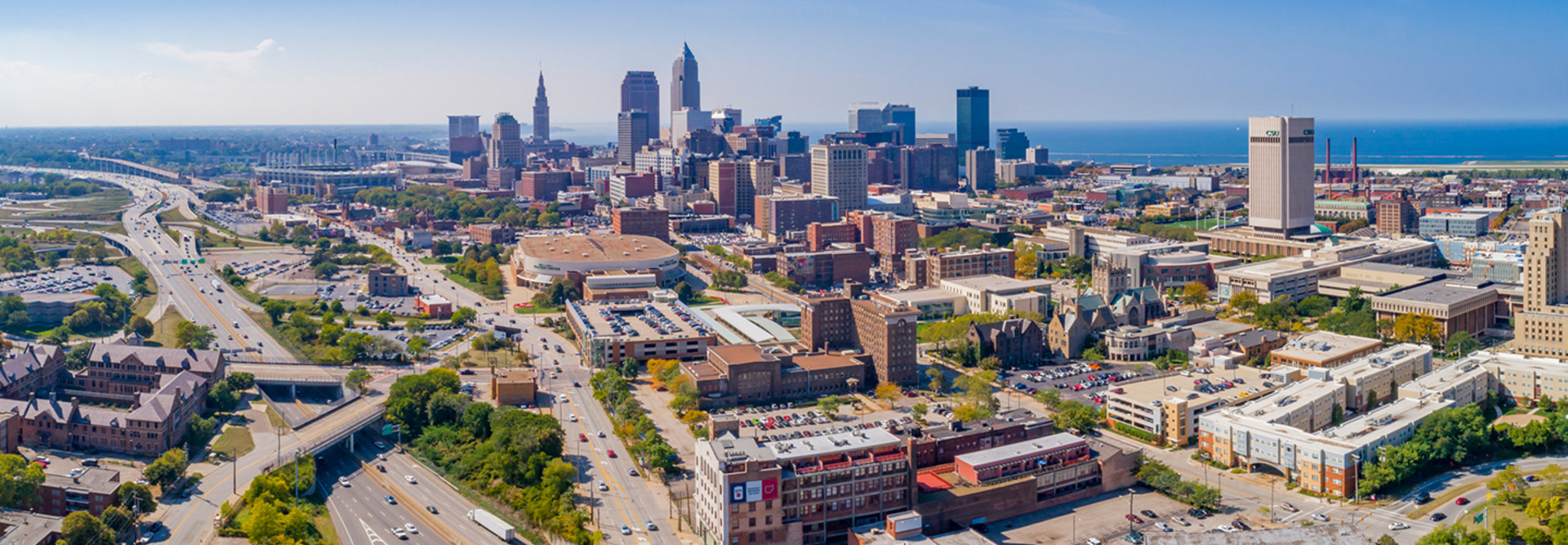How the Cleveland Foundation Aims to Close the Digital Divide
The digital divide has been evident to policymakers and nonprofits for many years now. In one corner of Ohio, the Cleveland Foundation is pushing hard to close it.
In October, the foundation announced $488,000 in grants to fund digital inclusion and expand access to broadband and modern technology in Cuyahoga County. The initiative is aimed at giving low-income residents greater access to high-speed internet and other IT solutions — a needed effort, given that Cleveland Foundation studies have found that in some portions of the Cleveland metropolitan area less than 40 percent of households have internet connectivity of 10 megabits per second or greater.
The program has established free library mobile hotspot lending programs at all 28 Cleveland Public Library branches and four Cuyahoga County Public Library branches. The foundation also partnered with PCs for People, a nonprofit that recycles business IT and offers refurbished tech to low-income households and individuals, to set up a location in Cleveland.
The foundation will also work with the Cuyahoga Metropolitan Housing Authority (CMHA) and CHN Housing Partners to provide marketing, education, advocacy and awareness for the overall initiative
The plan evolved from 2017 Cleveland Foundation studies on digital access and literacy, and broadband adoption and persistence. The studies identified “digital equity high-need areas” in need of digital inclusion services. According to the foundation, 20 percent of Greater Cleveland households are in DEHNAs, including 50 percent of residents of CMHA.
“The studies clearly pointed to the fact that there hadn’t been a concerted, unified effort to address digital inclusion in Cleveland,” said Leon Wilson, the foundation’s chief of digital innovation and CIO, in a press release. “By utilizing trusted anchor institutions already embedded in our neighborhoods and layering on a nationally-recognized organization such as PCs for People, we hope to address affordability and accessibility in a manner that’s equitable and inclusive for those residents most in need.”
MORE FROM BIZTECH: Why nonprofits need to embrace data analytics.
Nonprofits Partner to Offer Hotspots and Computer Hardware
PCs for People currently operates in Minneapolis/St. Paul and Denver, and allows residents who have incomes below 200 percent of the federal poverty level (currently $24,280 for an individual) or who are currently enrolled in an income-based government assistance program such as Medicaid or the Supplemental Nutrition Assistance Program to purchase refurbished computers. The organization also provides flat-fee tech support and repair services. According to News 5 Cleveland, the organization sells desktop PCs and laptops for a maximum price of $150. A limited number of free computers are available each day.
“What I’m particularly excited about is that PCs for People offers an opportunity for economic empowerment through digital inclusion,” Bryan Mauk, executive director of PCs for People in Cleveland, told The Plain Dealer.
PCs for People will also offer 4G LTE mobile hotspots with data plans priced at $10 per month with an annual contract, and $15 month by month.
“When you think about the power that a computer and the internet bring to being plugged into not only the community, but into the economic and job market, everything nowadays is done online,” Mauk told the Plain Dealer. “From food stamps and being unemployed in need of a job, to connecting to your family and kids, and getting news, everything is online. You can imagine the loneliness of not having a computer.”
Under the program, the foundation is also deploying 600 4G LTE unlimited data hotspot devices throughout all 28 Cleveland Public Library locations and 300 additional hotspots at four Cuyahoga County Public Library branches (Garfield Heights, Warrensville Heights, Maple Heights, Southeast/Bedford Heights).
The devices are free to check out and available for 21-day lending periods with no charge for connectivity.
“It’s a really simple idea to a complex problem and that’s where it is exciting,” Mauk told News 5 Cleveland. “It is so scalable that it can be replicated in every city across the country and that’s what we’re testing here in Cleveland.”









